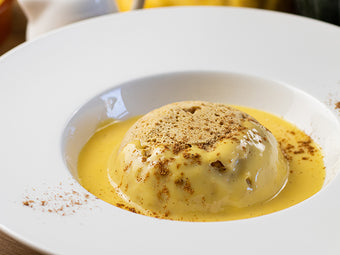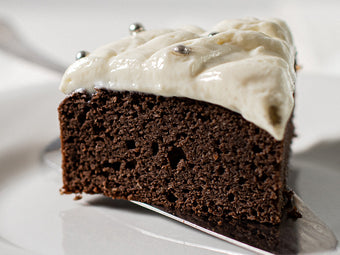What are the health benefits of Psyllium?
What is it Psyllium?
Psyllium is a natural, dietary fibre, derived from the seeds of the Plantago Ovato plant which is native to parts of Asia, North Africa and Europe.
Psyllium is mainly used for its mucilage content, which is a clear, colourless, gelling agent extracted from the seed coating. The mucilage is often referred to as the husk. It is a white, fibrous material that is hydrophilic, meaning that its molecular structure causes it to attract and bind to water. This helps to form a gel that increases in volume by tenfold or more.
The seeds contain a polymer-rich in arabinose and oxylose which cannot be digested well in humans. However, they have been shown to have a prebiotic effect in the gut as our bacteria can utilise them as a source of energy.

What are the health benefits of Psyllium?
As a natural, dietary fibre, psyllium is often added to foods to help increase the fibre content. Currently, in the UK the average intake of fibre is only around 18g a day however we should be consuming closer to 30g. The Institute of Medicine identifies dietary fibre as the “the non-digestible carbohydrates and lignin’s that are intrinsic and intact in plants”(1). Dietary fibre has many health benefits.
1. Healthy Digestive System
It helps to keep our digestive system healthy and reduces the risk of gastrointestinal disorders such as constipation. Individuals with high intakes of fibre have been shown to have a lower risk of developing cardiovascular disease, type 2 diabetes and obesity. Increased fibre intake can also lower cholesterol levels and blood pressure (2).
2. Blood Glucose Control
Studies have shown that soluble fibre, such as psyllium, forms a gel like substance in the small intestine. This causes an increase in viscosity of chyme, making it thicker, which slows the absorption of glucose and other nutrients. In the short term, this can lead to a reduction in peak postprandial blood glucose concentration (McRorie, 2015a) (3). Longitudinal intervention studies have investigated whether psyllium can be beneficial at reducing glycaemic control in patients at risk, or being treated for, type 2 diabetes. A 6-month study showed that when psyllium was added to a control diet in those with type 2 diabetes, risk factors including fasting blood glucose, insulin and HBA1c, were all significantly reduced (4).
3. Lowers Cholesterol
The increase in viscosity of chyme induced by a gel-forming fibre has also been shown to lower elevated cholesterol levels by 6-24%. It does this by trapping and eliminating bile which is released into the duodenum in response to a meal. A reduction in the bile acid pool causes hepatocytes to compensate by increasing LDL cholesterol clearance from the blood to synthesise more bile acids. This clearance of LDL cholesterol from the blood lowers LDL cholesterol and improves the total cholesterol to HDL ratio (3).
4. Assist With Weight Loss
As well as improving glycaemic control and lowering cholesterol, psyllium may also assist with weight loss. In 2010 Cicero showed that supplemented psyllium could help patients with metabolic syndrome lose on average 3.3kg of body weight over the six-month study (4). The weight loss benefits are thought to be due to the ability of psyllium to increase satiety and reduce the feeling of hunger between meals (5)
5. Helps Treat Gastrointestinal Disorders
Another benefit of psyllium is that it can be used to treat gastrointestinal disorders such as constipation (6). By retaining water in the small intestine and increasing water flow to the colon, psyllium can increase the fluidity of the colonic content.

References:
1- https://www.ncbi.nlm.nih.gov/pubmed/12449285
2 - https://www.ncbi.nlm.nih.gov/pmc/articles/PMC4415970/
3- https://www.ncbi.nlm.nih.gov/pubmed/19335713
4- https://moh-it.pure.elsevier.com/en/publications/psyllium-improves-dyslipidaemia- hyperglycaemia-and-hypertension-w
5 - https://www.ncbi.nlm.nih.gov/pubmed/27166077
6 - https://www.ncbi.nlm.nih.gov/pubmed/23326148










